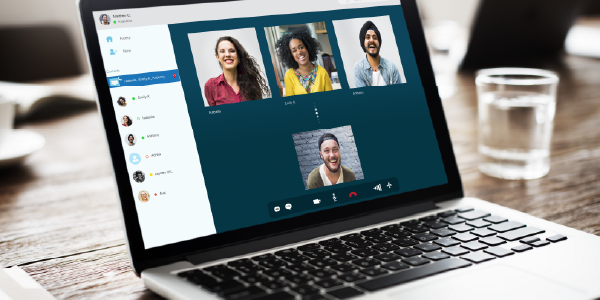Back to Blogs
With the majority of our teams now working remotely, the challenges of creating and maintaining company culture are evident. Technology can’t replace what the workplace provides: community, camaraderie and shared purpose. Now, more than ever, maintaining culture matters. Here are some ideas on instilling company culture across remote employees:
1. Connect Back to Your Values & Purpose
For many of our staff currently, working remotely has been unexpected and in the face of a global health crisis, many are at a loss for what to do. For some work may feel insignificant now, so as their manager this is your time to help employees find meaning and reconnect back to your company’s values and purpose. While you may not be a company at the frontline, you still have a positive impact on people’s lives. Remind your employees of how their contributions add up to something much bigger and that we are all in this together!
2. Communication is Key
Communication within divisions, one to one, social gatherings, company updates, all need to be consistent. This maintains relationships and promotes inclusivity.
Create an open and transparent communication policy. This allows people to be themselves and feel comfortable reaching out via online chat platforms. Set expectations on communication methods. Where do meetings take place? What tool is for social sharing?
Finally, you need to put an emphasis on positivity in your written communication. With the absence of face to face interactions in virtual conversations, it is easy for tone to be interpreted negatively so you need to be extra careful to be positive.
3. Mimic the Water Cooler Effect
As mentioned, many of our staff are currently missing the day-to-day work interactions they have with their colleagues. Therefore, assign a platform where team members can live chat, share files, post photos and collaborate throughout the day to mimic everyday office life. This can be where some of the best ideas and knowledge can be shared yet at the same time promotes inclusivity and the sense of “team”.
4. Trust
In a remote team, there aren't any silly rules about being in your seat during certain hours of the day. This means at the end of the week you either have something to show for your week or not. This means you trust that your teammates are getting something done. But also, that your teammates trust you. To earn that trust you want to make sure you have something to show for your work each week.
5. Focus on Health & Wellbeing
In the midst of a global pandemic, now is not the time to forget about your wellness programme when stress and anxiety is elevated. Make sure to check in with remote employees that they are taking breaks, finishing on time, and are maintaining a healthy work-life balance.
Make online workouts available to your employees allowing them to take part in physical activity. Perhaps set a company challenge such as a step challenge to get employees engaged in physical activity and as a plus networking with colleagues. For those struggling with sleep or anxiety, provide access to meditation or breathing courses. And to look after financial wellbeing consider organising webinars on topics such as managing a household budget, how your pension works, setting financial goals etc.
6. Rituals and Traditions
Creating traditions with your team members, regardless of how often they happen, helps keep teams cohesive and encourages open communication and trust. Before you were thrown into the digital remote working world, undoubtedly you had traditions in place for how promotions, achievements and even birthdays were recognised. To keep spirits up, it’s crucial you keep celebrating these milestones.
7. Ask for Feedback
Finally, the introduction to remote working has been unprecedented for many of us. Therefore, ask employees for honest feedback and suggestions. Use a pulse survey to get real data on this.
"You don’t need everyone physically together to create a strong culture. The best cultures derive from actions people actually take.” Jason Fried and David Heinemeier Hansson, Authors of Remote



